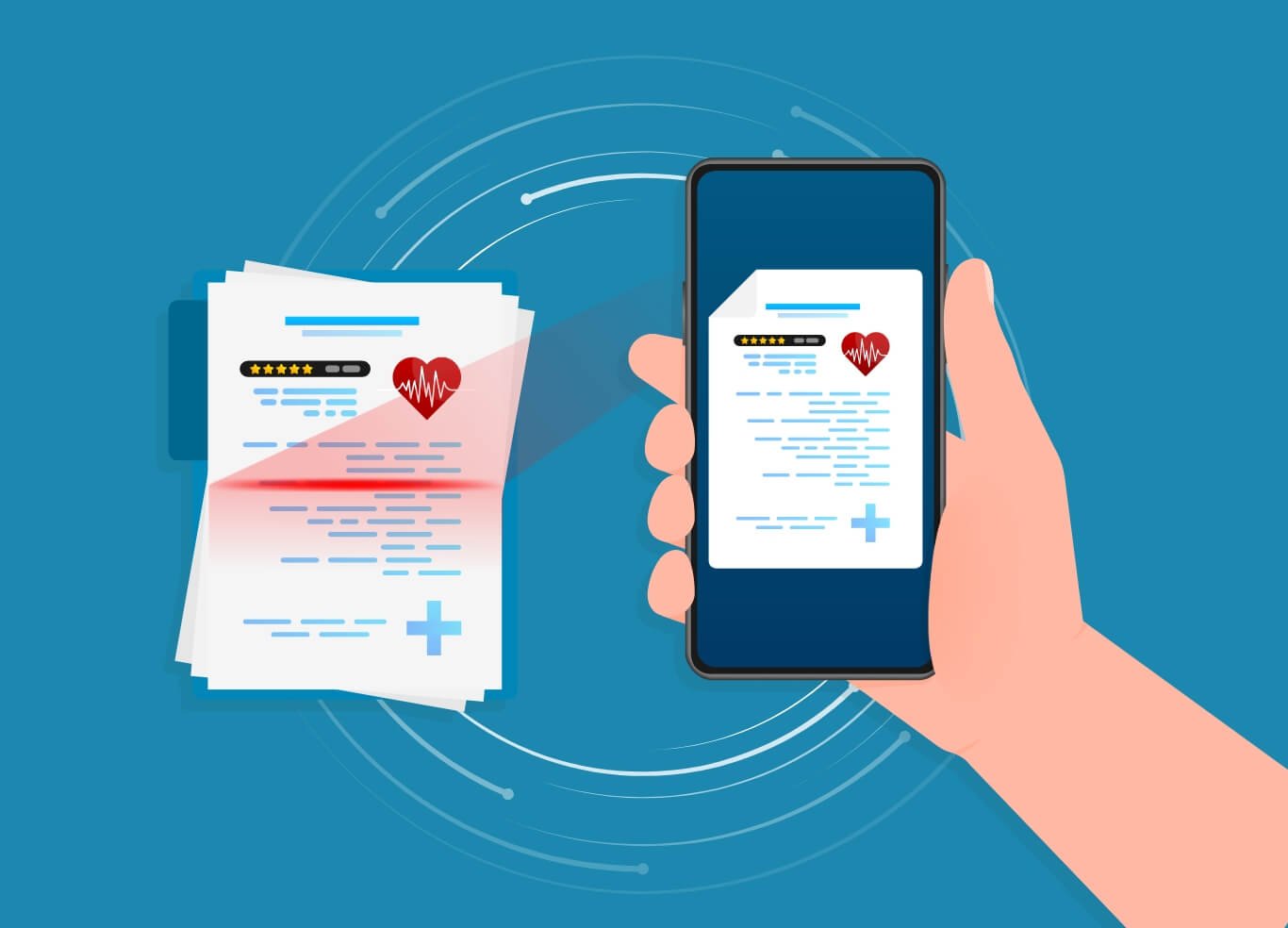The modern world consists of information from small to large pieces. Digitization has rapidly increased the economy, just like wildfire. Today, every industry is experiencing consistent growth in adopting digital transformation. In the existing business scenario, digitization has become crucial in upgrading business strategies, enhancing workflow, and thriving according to market dynamics. As there has been incessant growth in adopting the digitization approach, many economic sectors have transformed the working methodologies and made storing and managing mammoth data easier. In the era where data is paramount to generating success, sectors are now slowly digitizing their data.
Out of various sectors, healthcare is one of the most vital sectors of the economy for obvious reasons. Since science and technology go hand in hand, healthcare professionals have quickly taken advantage of improving and enhancing medical treatment conditions. However, despite engaging with digital age technology, healthcare needs to catch up in managing their records and crucial sets of data. In simpler terms, the healthcare industry is powered by bulk documents that involve a hectic paperwork process. To overcome the frenetic pace of generating healthcare documents, digitizing healthcare documents is an imperative solution.
Hospitals, medical centers, labs, research centers and facilities accumulate bulk documents, including patients’ medical histories, biological data prescriptions, consent forms, and clinical documents. Hence, document digitization in healthcare plays a pivotal role in avoiding and sorting all the documents. With the immense practice of this technology, digitized documents can lower production time, save time and money, increase communication, free up office storage, improve accessibility, and much more. Several benefits are dedicated to the medical industry that offer digitization of medical records. Let’s understand the importance of document digitization for the medical field.Streamline the Record Keeping Processes with Document Digitization
Brief Importance of Document Digitization for the Healthcare Industry
In the digital age, where technology is emerging, the healthcare industry has excelled by adopting technological advancements for the treatment of patients. The amount of data generated in the medical field is inevitably large due to different documents like patient records, medical history, clinical records, consent forms, medical charts, prescribed medicine, and much more. Apart from that, any medical facility has its own crucial documents containing information such as medicine and equipment records, history of disease, data, research and development information, and much more. For the following reasons, a significant amount of data generated using traditional methods (paper files) can be crucial, risky, and precarious in the long run.
- Loss of paper files due to natural mishappenings
- Damage to papers (Torn files, missing pages)
- Covers large storage space
- Unorganized and inaccuracy of data
Medical records are usually used to make an annual health report, whether state or nationwide. However, document digitization services can help keep all the records digitized, organized, and filtered for easy access to information whenever required. Besides, with digitizing health records, doctors and other healthcare professionals can directly focus on the betterment of their patients with extra care and observance. Moreover, the healthcare sector depends on the HIS platforms (Health Information Systems); these platforms enhance patient care facilities and provide organized and accurate data to medical professionals. Hence, the data generated in the HIS platform must also be organized, formatted, and filtered according to needs. Data entry becomes an economical way to manage the healthcare field.
Poor document management in any medical sector can lead to deceived information, resulting in incorrect decision-making. This makes document digitization process in the healthcare sector provides secured data, less labor-intensive work, and saves time and money. Also, digitizing health records eliminates the burden of filing papers occasionally, which helps doctors and healthcare experts provide better services and focus more on research and development in the medical field. Document digitization has become an inseparable aspect of the healthcare industry with several benefits.
Benefits of Healthcare Document Digitization
Medical records help doctors, physicians, and other healthcare professionals provide extensive treatment and care to their patients. Documents in paper formats can easily get misplaced, damaged, or lost for a variety of reasons. Moreover, generating information or extracting data when required is challenging, as going through tons of paper files can be a cumbersome task. Therefore, document digitization in healthcare offers several benefits to professionals and concerned authorities.
Heathcare Document Digitization Advantages
Easy Access to Information
Accurate Information/Data
Formatted, Categorized, and Filtered Data
Environmental Friendly
Cost Saving
Core Focus of Medical Treatments
Free Up Stroage
Data Security
Easy Data Sharing
Backup and Recovery of Information
Digitizing health records can benefit most big hospitals and medical facility centers. On the other hand, small medical centers, clinics, and checkup centers can eliminate paperwork and record data in their systems via HIS (Health Information System), which includes EMR (Electronic Medical Records) and eMARs (Electronic Medication Administration Record).
To Wrap Up
The healthcare field is a vast sector that significantly contributes to the economy. Moreover, it is vital to keep healthcare a top priority for any nation and keep medical data secure and confidential. Therefore, document digitization is a comprehensive method for the medical field to keep all the paper files in digital format and have quick access whenever required. Moreover, Uniquesdata offers extensive document digitization services in the healthcare sector through a team of professionals who accurately convert paper records into digital format.



